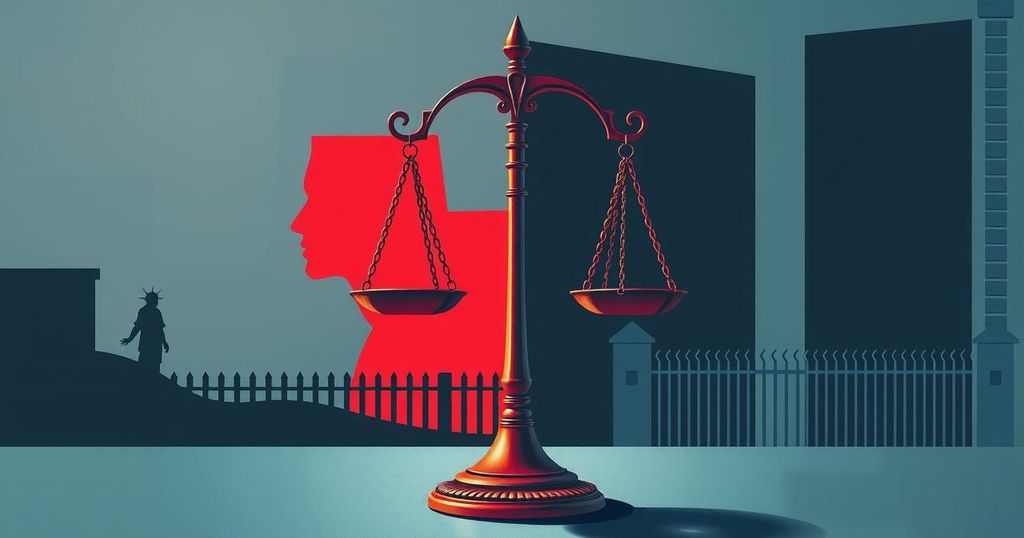The Abrego Garcia Case: Immigration Policy and the Principle of Due Process

The Kilmar Abrego Garcia case highlights the conflict between Democrats emphasizing due process and Republicans focusing on immigrant criminality. The situation has become a focal point for both parties, with Democrats rallying for Garcia’s rights and Trump defending strict immigration policies. The case has wider implications for discussions on government authority and the constitutional principles at stake.
The Kilmar Abrego Garcia case highlights critical debates surrounding immigration and government authority in the United States. Kilmar Abrego Garcia, a Salvadoran citizen mistakenly deported by the Trump administration, is at the center of this conflict. Democrats emphasize the case’s implications for due process and individual rights, while Republicans frame it as a national security concern linked to immigrant criminality.
As Democrats rally to support Abrego Garcia, they portray the situation as a defense of civil liberties against perceived government overreach. This comes amid heightened scrutiny on Trump’s controversial immigration policies, particularly given a Supreme Court order mandating Garcia’s return to the U.S. This incident has allowed Democrats to challenge the administration’s narrative that emphasizes threats posed by undocumented immigrants.
Maryland Senator Chris Van Hollen has actively engaged in this case, traveling to El Salvador to meet Abrego Garcia, and several House representatives are planning official visits to the Salvadoran prison. Notable Democrats like Hillary Clinton, California Governor Gavin Newsom, and Senator Bernie Sanders have also vocalized concerns, framing the situation as an illustration of government overreach.
Trump’s administration maintains a stringent stance, branding Garcia a “terrorist” and a member of the MS-13 gang, despite there being no criminal charges against him in the U.S. Attorney General Pam Bondi has stated, “He is not coming back to our country.” Trump defends his approach by claiming a mandate to deport criminals, asserting many arrivals during the Biden administration are harmful.
Polling data indicates a nuanced public perception of immigration enforcement, with significant support for deporting violent offenders but divisive opinions on broader deportation measures. While the Trump administration acknowledges an administrative error in Garcia’s deportation, the implications of defying court rulings could complicate its position.
Congressman Glenn Ivey emphasizes the need for due process, outlining that the case transcends mere immigration policy to touch on constitutional principles. He notes, “On the one hand, it’s an immigration issue. On the other hand, it’s also a constitutional issue.”
The Kilmar Abrego Garcia case encapsulates the ongoing tensions between immigration policies and individual rights in the United States. As Democrats seize this opportunity to advocate for due process, the Trump administration faces substantial public scrutiny, especially in light of court rulings. This situation serves as both a pivotal immigration debate and a constitutional concern regarding government authority and individual liberties.
Original Source: apnews.com






